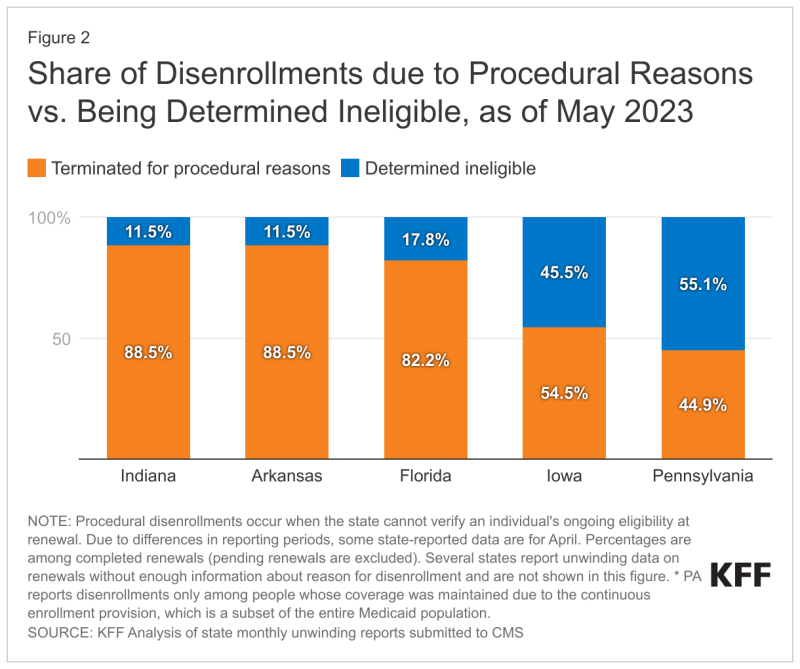The cracks in Medicaid that some experts feared eligible beneficiaries could slip through during the disenrollment process appear to be forming, according to a new KFF survey.
Many people eligible for Medicaid have not gone through the reenrollment process before. Many others simply aren’t aware that they’re eligible, according to KFF’s review of early data from 11 states. These “procedural disenrollments” might wind up causing thousands of Medicaid-eligible people to lose coverage, according to the report.
KFF last month found that nearly two-thirds of Medicaid enrollees don’t realize that states have begun the disenrollment process, while half of those surveyed said that they have not pursued enrollment.
Researchers at KFF analyzed data from 11 states on the redetermination process, and, while it's still an early look at the process, the results raise concerns.
“With such high disenrollment rates for procedural reasons, it is likely that some, possibly many, people who lose coverage continue to qualify for Medicaid,” the survey said. “Some of these people may churn back onto the Medicaid program, but others may not regain coverage.”
There’s about a 10% churn in Medicaid enrollees each year, often around renewal time. Most people who lose Medicaid coverage experience a period of being uninsured before again enrolling in Medicaid, the researchers said.
Procedural disenrollments exceeded 80% in Florida, Arkansas and Indiana. High procedural disenrollments are concerning as “nearly two-thirds of current Medicaid enrollees said they did not have a change in income or circumstance in the past year that would make them ineligible for Medicaid,” according to KFF.
“While it is possible that some people are not completing the renewal process because they have other coverage, the survey findings suggest many of the people whose coverage was terminated for procedural reasons in the past month likely remain eligible," the analysts wrote.

Nine of the 11 states surveyed reported both completed renewals and total disenrollments. The disenrollments range from 54% in Florida to 10% in Pennsylvania and Virginia.
Among the nine states, the median disenrollment rate stood at 24%.
The Centers for Medicare & Medicaid Services (CMS) mandates that states report each month how many individuals have coverage renewed, the number of renewals that are due and any disenrollments for procedural reasons, but so far only a handful of states have done so.
“Having more consistent data from all states would help provide a clearer picture of how the unwinding is unfolding across states,” the KFF survey said.
How CMS and the states might respond to early data on the Medicaid redetermination process remains to be seen, although some states aren’t waiting for CMS guidance, the analysts said.
“For example, Idaho paused procedural disenrollments in April because of a technical issue and Iowa is holding open cases to do a ‘safety check’ to ensure that they don’t overlook any documents that have been submitted,” the survey states. “How CMS will respond remains uncertain," the researchers wrote. "The agency is working with states to address compliance issues and it does have the authority to require states to pause procedural disenrollments if states do not take corrective action to address compliance issues.”